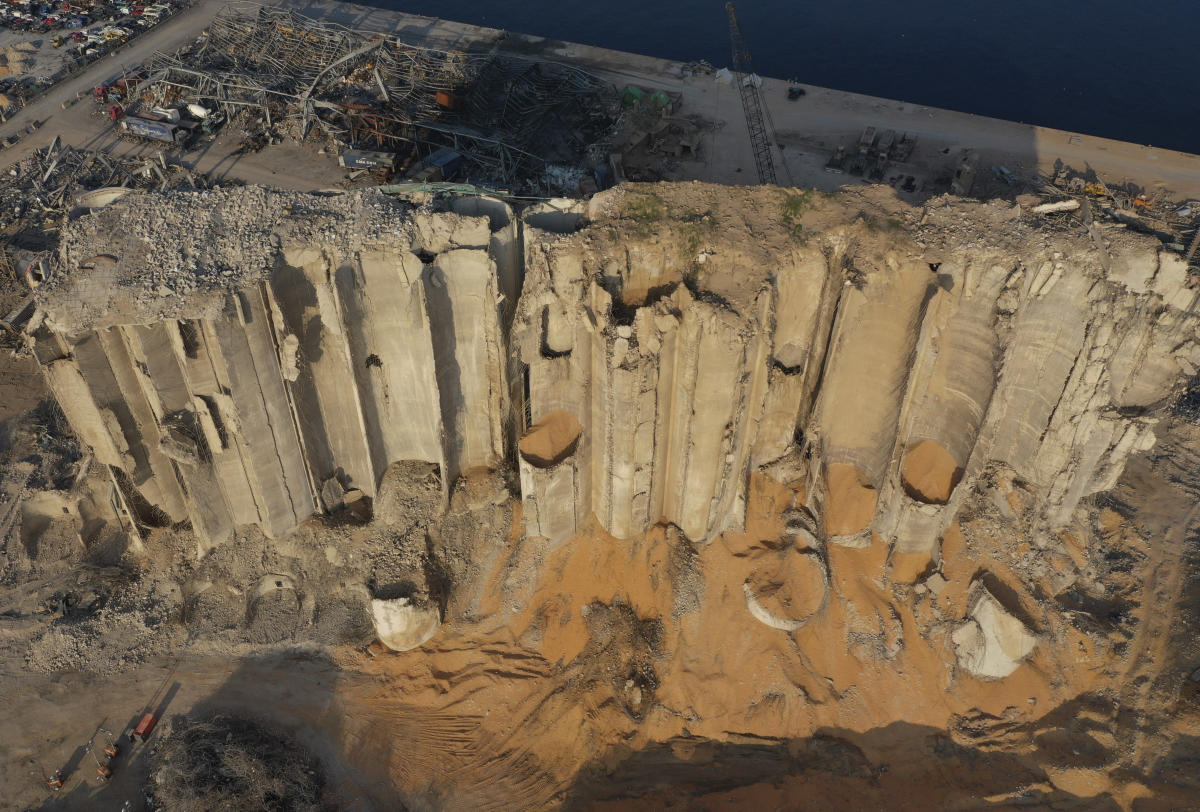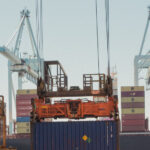
BEIRUT (AP) — Lebanon’s government on Thursday approved the demolition of the huge grain silos in Beirut’s port, gutted in the devastating 2020 explosion that killed 216 people and ravaged parts of the Lebanese capital.
Information Minister Ziad Makari made the announcement after a Cabinet meeting, citing the risk of collapse of the once towering cement structure jutting from the Beirut coastline that was shredded by the force of the blast. He did not specify a timeframe.
Demolishing the silos is controversial in a country gripped by multiple crises, including an economic meltdown, financial chaos and anger over the stalled investigation into the port blast. The explosion was triggered by the detonation of hundreds of tons of improperly stored ammonium nitrates in a port warehouse. The resulting explosion was one of the largest non-nuclear blasts in history.
A government-commissioned study in the wake of the disaster said the 50-year-old silos could collapse at any moment and should be demolished, sparking an emotional debate among the city’s residents over how to preserve the memory of the tragedy.
Relatives of the victims of the blast and many other Lebanese want the silos to stay as a “mark of shame” and reminder of the corruption and negligence of politicians that many Lebanese blame for the tragedy. Rights groups and families are concerned it’s a tactic to protect senior officials, none of whom have so far been detained or charged with any wrongdoing.
Following the news, families of the victims called for a protest near the port.
The massive, 48-meter-high silos absorbed much of the explosion’s impact, effectively shielding the western part of the city from the blast that damaged or completely destroyed thousands of buildings.




